Why Star Trek III: The Search for Spock Is Unfairly Overlooked
Star Trek III: The Search for Spock is stuck in an unfortunate spot.
This article is more than 2 years old
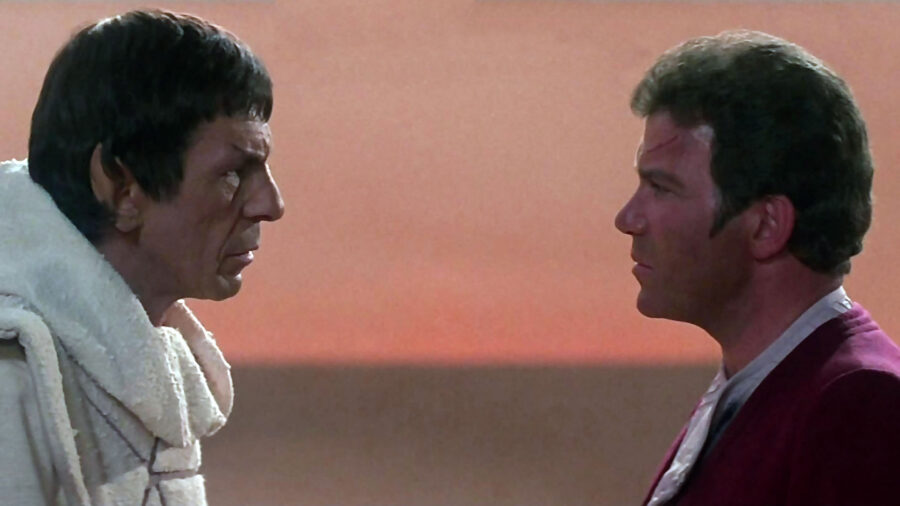
Star Trek III: The Search for Spock is stuck in an unfortunate spot. After the critical and financial success of Star Trek II: The Wrath of Khan, this follow-up wasn’t nearly as well-received by fans, even though it did almost similar business to Star Trek II. Then, Star Trek IV: The Voyage Home releases and is a huge hit both critically and at the box office.
So, this narrative developed about the Star Trek movies that “the odd-numbered ones are bad,” and Star Trek III: The Search for Spock played into that because it was smushed between two very beloved entries in the franchise. And over the years, the discourse has pretty much died around this movie.
That’s a shame. Star Trek III: The Search for Spock deserves a lot more love and here’s why it is now unfairly overlooked.
Star Trek III Is a Solid Sequel
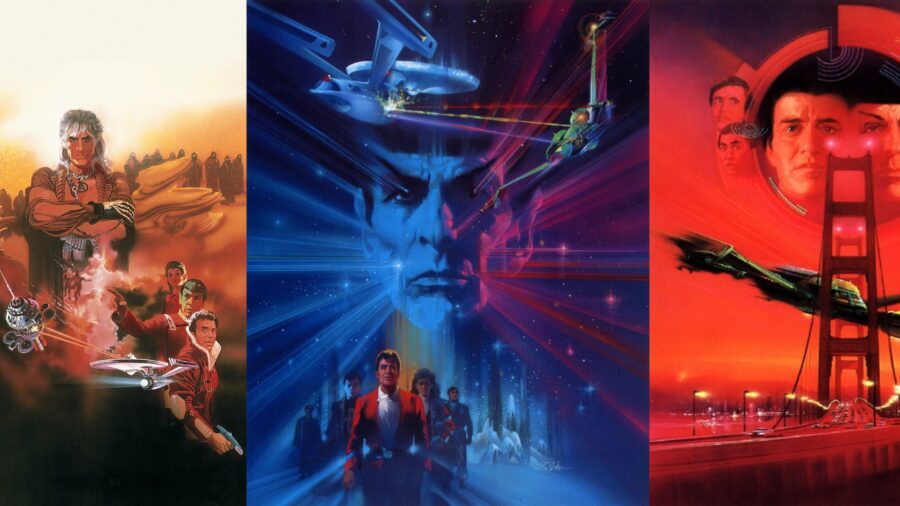
Star Trek III: The Search for Spock is the middle part of a trilogy. Because Star Trek II: The Wrath of Khan and Star Trek IV: The Voyage Home are more heralded entries, a lot of people tend to overlook what this middle entry does in terms of its sequel goals.
It’s worth noting that Star Trek III: The Search for Spock had to act as a way to erase the catastrophic death of Spock in the previous film. That death was so powerful that it likely could have been permanent with how well it was executed. However, the setup for Spock returning was already present and we all knew they wouldn’t actually kill off one of the most beloved characters in all of Star Trek. If one of your criticisms is that they brought back Spock, that isn’t enough to condemn this movie.
And there are other sequel elements that Star Trek III: The Search for Spock succeeds at. Following the Genesis Planet story that ended Star Trek II: The Wrath of Khan wasn’t only necessary – Spock’s body landing on a planet that was rapidly evolving and ends up creating life was clearly set up to bring him back – but it’s actually a great story on its own. The idea that a brand new planet was created by people offers a lot of good science-fiction material to explore. We get to see the planet’s speedy evolution and decay and it provides a great backdrop for the main story.
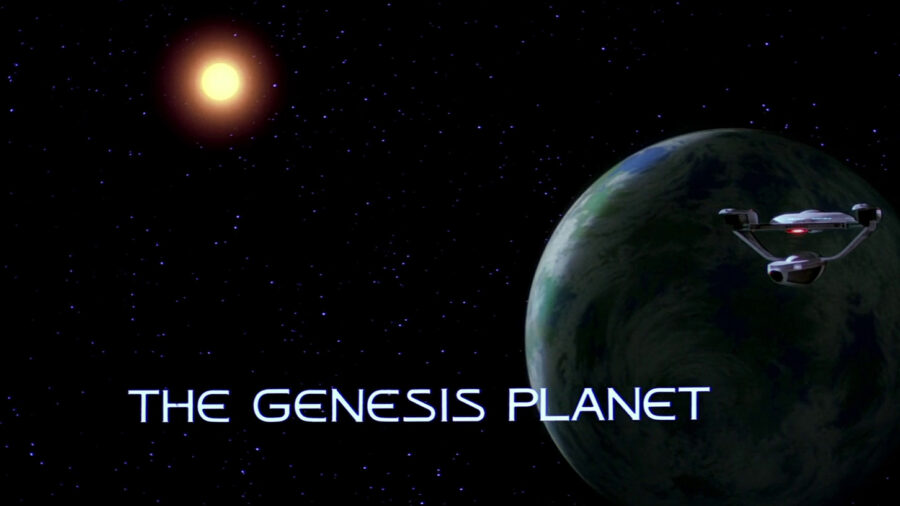
Then, there is Kirk’s son, David. Introduced in the previous film, David was a character who had to return. Star Trek III: The Search for Spock knows it has to find a good way to utilize him. After the last film dealt with Kirk and David finally reconciling, it’s only natural that this film should take their story to a tragic end. Could more have been done with David? Absolutely, but his death is going to prove a vital part of the themes this movie wants to tackle.
Because Star Trek III: The Search for Spock isn’t just an empty adventure. It’s got things on its mind and it needs to be given some serious credit for how it approaches those ideas.
Sacrifice
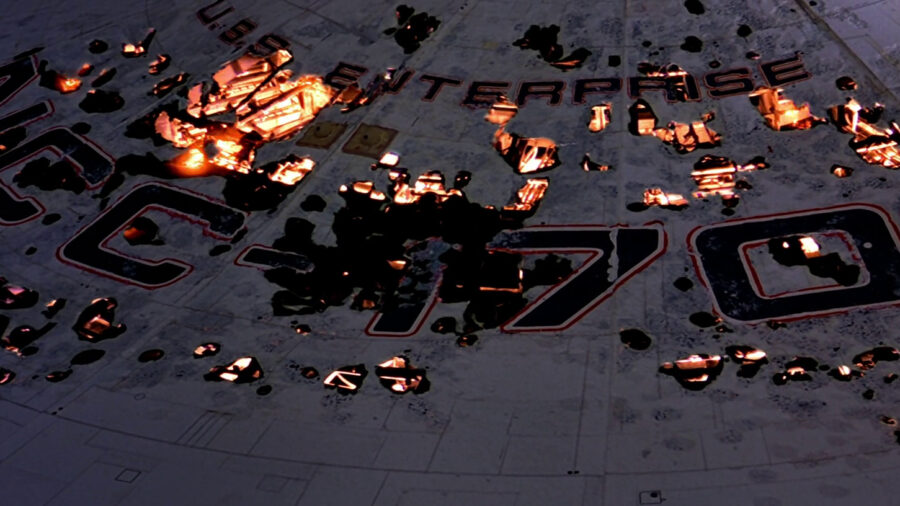
If Star Trek II: The Wrath of Khan was about confronting your past and aging, Star Trek III: The Search for Spock is about sacrifice and what you’re willing to give up for someone you care about.
Kirk’s entire story revolves around doing whatever he can to return Spock’s katra and possibly resurrect his best friend. In the previous movie, Kirk pointedly said that he didn’t believe in a no-win scenario. Spock’s sacrifice of his own life proved that Kirk would have to face such a moment and that he would lose the person that was most dear to him. With the chance of getting Spock back now a possibility in Star Trek III: The Search for Spock, Kirk goes to lengths that we had never seen from the character before.
There is an odd perception in pop culture of James T. Kirk as this renegade figure who plays by his own rules. In fact, that characterization wasn’t overly present in Star Trek: The Original Series. Kirk was often extremely levelheaded and did everything in his power to adhere to the beliefs of the Federation. The idea of Kirk being this rebellious spirit really took root in Star Trek III: The Search for Spock. After Starfleet denies his request to return to Genesis, Kirk and the Enterprise crew steal their ship back, sabotage the newly completed USS Excelsior, and defy any institutional mandate in order to save their colleague.
As far as Star Trek III: The Search for Spock is concerned, this means that Kirk will be stripped of his Starfleet uniform and likely imprisoned. Yes, that isn’t followed through with in the next film, but when the captain of the Excelsior tells Kirk that his actions will result in his removal from Starfleet, Kirk doesn’t hesitate to continue with his mission. James Kirk was willing to sacrifice his inclusion in Starfleet to save his friend. When you consider how much Starfleet was a core part of Kirk’s identity, his relative ease in abandoning it for Spock is a powerful choice and well-executed in the film.
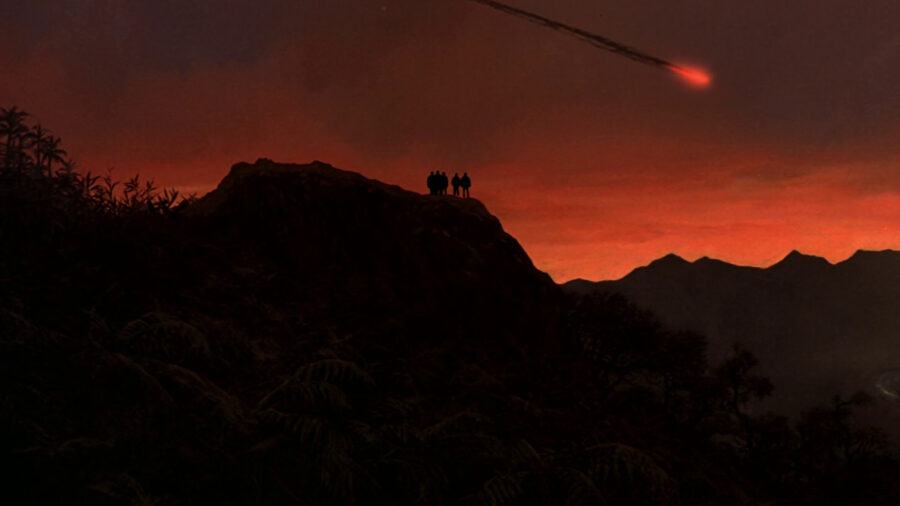
More than Starfleet or even the death of his son, the real sacrifice for Kirk in Star Trek III: The Search for Spock is the Enterprise itself. Kirk’s love of the ship likely equals his love of Spock, and to see him make the choice to destroy it is gut-wrenching. The entire self-destruct sequence is drawn out for maximum dramatic effect. The shots of the Enterprise exploding and falling out of the sky are some of the most powerful in all of Star Trek. We’ve become numb to the intended emotional impact of big destruction in modern Star Trek, but the death of the Enterprise still stands as a moment of incredibly effective annihilation.
So, is it just themes and sequel follow-up stuff that makes Star Trek III: The Search for Spock a winner? No. Because even on its own merits, this movie is an absolute blast.
Space Adventure At Its Finest
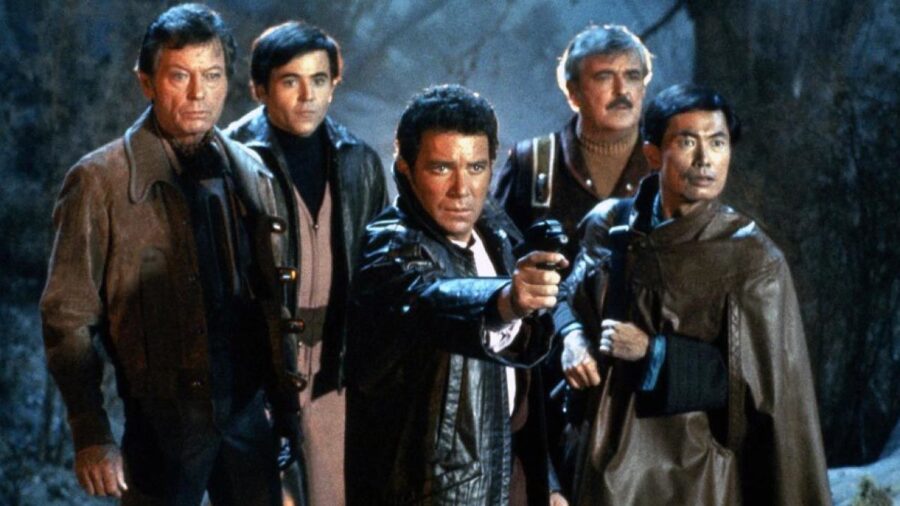
Star Trek III: The Search for Spock carries on the same tone that Star Trek II: The Wrath of Khan established for cinematic Star Trek outings, and it does a more than competent job at it. The feeling of adventure and swashbuckling in space is still here and it keeps the movie from ever coming off as stodgy or maudlin.
Some of the best humor in the entire Star Trek movie canon can be found in Star Trek III: The Search for Spock. Having Bones be the vessel for Spock’s “soul” results in some humorous bits of acting from DeForest Kelley, and the exchange he and Kirk have when Kirk rescues Bones from Starfleet security is sidesplitting stuff. When Bones realizes he’s carrying Spock’s essence inside him, his retort of, “That green-blooded son of a bitch! It’s his revenge for all those arguments he lost,” is guaranteed to make any Trek fan laugh.
Humor isn’t the only weapon in Star Trek III: The Search for Spock‘s arsenal. It also has a good villain in Klingon Commander Kruge, played by legendary character actor Christopher Lloyd. We’d seen the Klingons as tough adversaries before, but this is the entry that solidified them as Kirk’s greatest foes. Kruge’s brutality and callousness helped to cement the modern interpretation we have of Klingons. He gets more than his fair share of memorable moments, from crushing an alien worm to death with his bare hands to petting his somehow adorable monster dog.
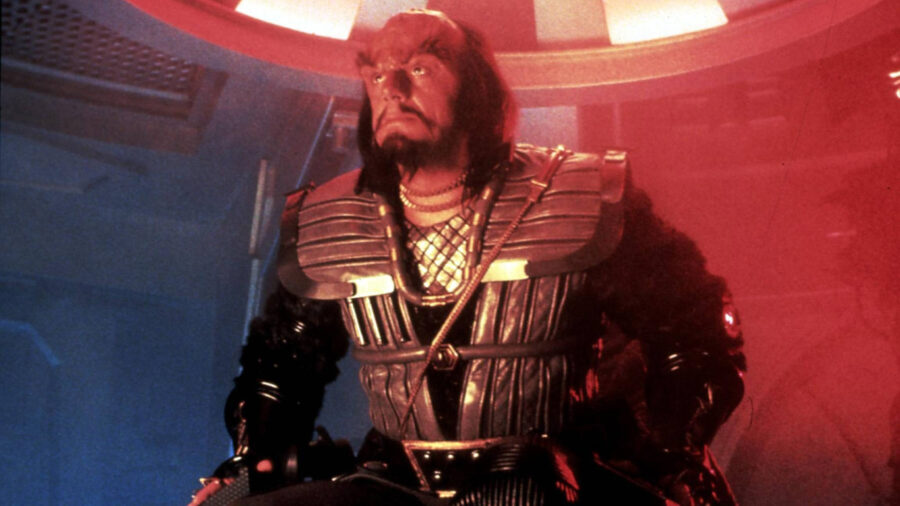
Most importantly, Star Trek III: The Search for Spock tells a compelling story through its filmmaking. The pacing is solid and never feels rushed or sluggish. Leonard Nimoy stepped into the director’s chair, marking his debut as a feature film director, and he makes the movie feel both epic and intimate. James Horner continues the great work he did in Star Trek II: The Wrath of Khan and the music here feels like it’s crystallized into a very specific “Star Trek movie” sound. Everything is working in tandem to make the cinematic experience of the film click.
Add to all this the always enjoyable ensemble of Enterprise actors, the warm mood of classic Star Trek, and a story that cares more about its characters than being pure spectacle – though, the pure spectacle and effects work is excellent – Star Trek III: The Search for Spock is much better than its reputation would lead you to believe. There’s no denying that Star Trek II: The Wrath of Khan and Star Trek IV: The Voyage Home are better movies, but that doesn’t make this entry bad simply by comparison. It deserves just as much love from the fanbase as the other two entries in the trilogy, and it’s time to value it as a crucial and heartwarming entry in the Star Trek canon.













